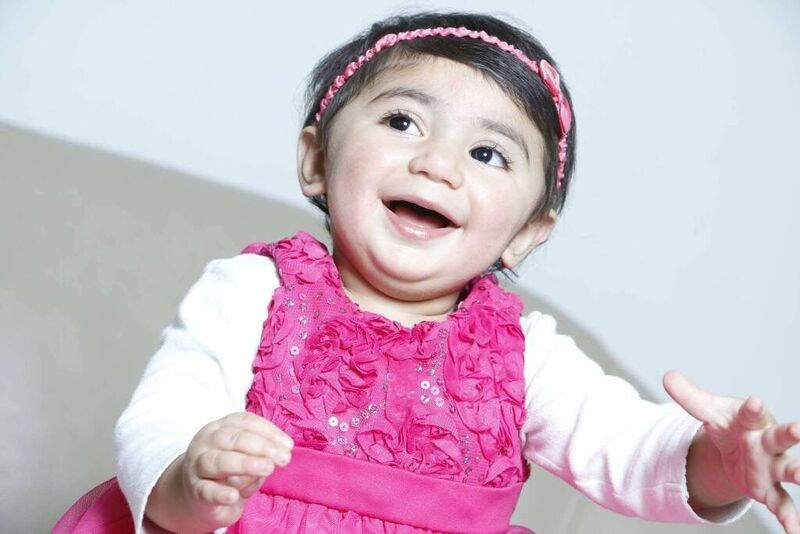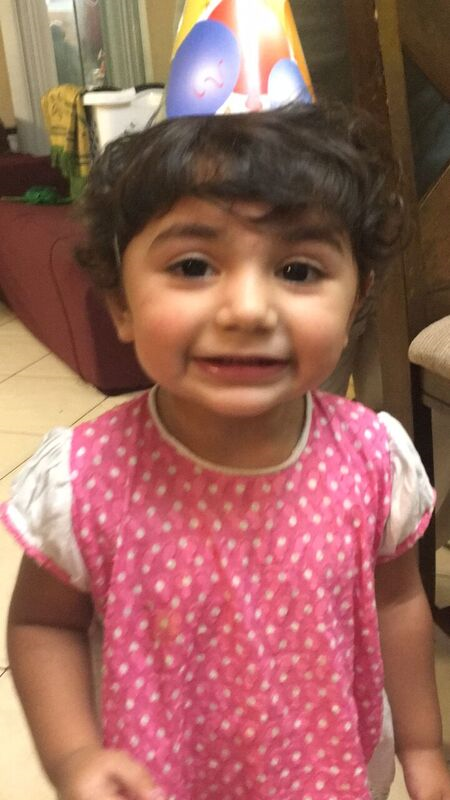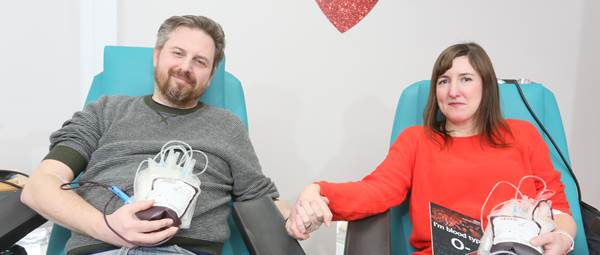International donor hunt
Two-year-old Zainab Mughal from America needs life-saving blood transfusions. She also has one of the rarest blood types in the world.
Zainab has neuroblastoma and needs blood transfusions and bone marrow transplants to treat her condition. Her need for a rare blood type sparked an international search for a suitable donor. A search that finished in Nottingham, when one of our very own blood donors was found to be a match.

Zainab’s blood is missing an antigen known as ‘Indian B’, which most people carry. The only donors likely to be a match are people of exclusively Pakistani, Indian or Iranian descent with the blood type O or A, and fewer than 4 per cent of such people will be missing the Indian B antigen.
The search started when the American Rare Donor Programme contacted the International Blood Group Reference Laboratory (IBGRL), our specialist unit based in Filton in Bristol.
The IBGRL carries out world leading testing and research in transfusion medicine – it’s a laboratory carrying out specialised testing and holding information on the most complex and rare blood problems. It also compiles and maintains the International Rare Donor Panel (IRDP), and stores details of rare donors from 27 contributing countries as well as frozen unit inventories from frozen blood banks around the world.
Rare donor identified
Once the donor was identified, they were contacted and asked to donate a unit, which was tested and sent over to the US. The donor was a 50-year-old British Indian mother of two from Nottingham, who preferred to remain anonymous.
She says, “I feel privileged that my blood donation has helped another human being. Having a rare blood type doesn’t tend to be at the forefront of my mind on a daily basis. I didn’t know who the recipient was when I donated but I do know now, having read the coverage. I am very humbled that I have played a small part in aiding someone’s recovery from illness.”
She adds, “I do hope the publicity encourages more people to donate, especially from the Asian community, as even a single donation can make a massive difference to someone who needs it. Giving blood is something that most people can do.”
Dr Rekha Anand, the NHSBT consultant haematologist who manages the UK’s rare donor panel, says, “This was a team effort from NHS Blood and Transplant. The donor is always very happy to help. The credit goes to all our British donors, whose altruism is the key. We would urge more British people from minorities to also come forward and donate because we do not have enough donors from these backgrounds.”
Many blood groups
Nicole Thornton, head of Red Cell Reference at the IBGRL, says, “It was the combination of blood groups that made it so difficult to source units of blood for this patient.
“Most people have heard of the ABO and Rh blood groups. However there are actually more than 360 blood group antigens and new ones are still being discovered.
“The logistics of sending blood around the world can be incredibly complicated.
“But blood donation saves lives and we are really proud to help match up donors and recipients in these rare cases, in collaboration with our colleagues around the world; it really is an international team effort.”

Book your appointment online
Book nowNot as simple as ABO
Some patients need specially matched blood and that’s where rare donors come in

Other stories
Remarkable stories from the world of giving blood – be they from the research lab, the hospital bed, or the donor chair
